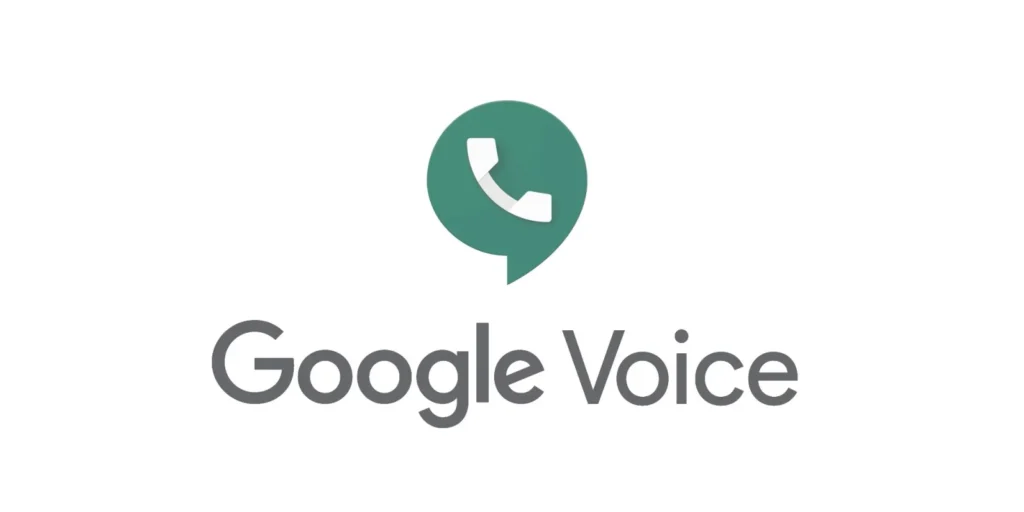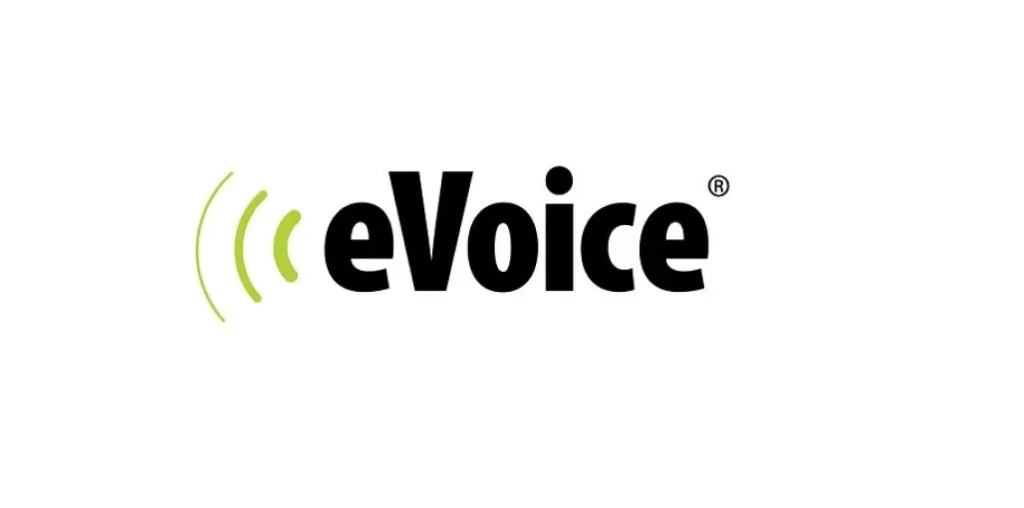In the fast-paced digital landscape of 2023, effective communication has become paramount for individuals and businesses alike. Virtual phone number apps have emerged as a versatile solution, providing the flexibility of a phone number without the limitations of a physical SIM card. Whether you’re seeking to establish a local presence, streamline business operations, or ensure privacy, the plethora of virtual phone number apps available in the USA can cater to a diverse range of needs.
In this dynamic era, where connectivity is key, we present a comprehensive list of the 20 best virtual phone number apps for the USA in 2023. These apps have been carefully evaluated based on their reliability, features, user-friendliness, and compatibility with the latest communication trends. From entrepreneurs aiming to expand their market reach to individuals desiring enhanced control over their communication channels, these apps offer a myriad of benefits.
Join us as we explore the innovative solutions that these virtual phone number apps bring to the table. Whether you’re a small business owner, a remote worker, or simply seeking a more versatile way to manage your calls and texts, our list will provide valuable insights into the top virtual phone number apps that can empower you to communicate effectively and efficiently in the digital age of 2023.
Criteria for Evaluating Best USA virtual phone number apps for 2023
Sure, when evaluating virtual phone number apps for the USA in 2023, there are several criteria you should consider. Here are some important factors to look for:
- Reliability and Call Quality: Choose an app that offers consistent and high-quality call connections. Check user reviews and ratings to get an idea of the app’s reliability.
- Coverage: Ensure that the app provides virtual phone numbers for the specific areas you need, whether it’s local, toll-free, or international numbers.
- Number Porting: The ability to port an existing number to the virtual phone number app is crucial if you want to maintain continuity for your business or personal contacts.
- Features: Look for features such as call forwarding, voicemail transcription, call recording, auto-attendants, and SMS capabilities. Depending on your needs, these features can greatly enhance your communication experience.
- User Interface: A user-friendly and intuitive interface makes managing your virtual phone number much easier. The app should be easy to navigate, set up, and customize.
- Cost: Consider the pricing structure of the app. Some apps offer free plans with limited features, while others may have tiered pricing based on usage. Evaluate your budget and needs to find the best fit.
- Integration: If you’re using the virtual phone number for business purposes, check if the app integrates with other tools you use, such as CRM software or email clients.
- Call Management: The app should offer call management features like call blocking, call screening, and the ability to set business hours to control when calls are forwarded.
- Customer Support: Reliable customer support is essential in case you encounter any issues or need assistance with the app.
- Security: Given the sensitive nature of phone communications, ensure that the app employs proper security measures to protect your data and conversations.
- Trial Period: Look for apps that offer a trial period or money-back guarantee so you can test the service before committing to a subscription.
20 best USA virtual phone number apps for 2023.
1. RingCentral: Enhance Your Communication
RingCentral, a pioneer in the virtual communication realm, provides an all-in-one solution for businesses of all sizes. Its user-friendly interface, integration capabilities, and crystal-clear voice quality make it a popular choice.
Features:
- Multi-device access
- Team messaging and collaboration
- Video conferencing
Pricing: RingCentral offers various plans starting from $19.99 per user per month.
Pros:
- Robust features
- Scalability
- Integrations with popular business apps
Cons:
- Higher pricing compared to some alternatives
- Learning curve for comprehensive features
2. Grasshopper: Simplicity and Functionality
Grasshopper is tailored for entrepreneurs and small businesses seeking a straightforward virtual phone number solution. Its intuitive platform and essential features make it a go-to choice.
Features:
- Call forwarding and routing
- Voicemail transcription
- Custom greetings
Pricing: Grasshopper’s plans start at $29 per month.
Pros:
- Easy setup and management
- Ideal for small teams
- Professional image
Cons:
- Limited advanced features
- Higher pricing for added extensions
3. Google Voice: A Cost-Effective Choice
Google Voice, a free virtual phone number service, offers an economical option for individuals and small businesses looking to establish a professional presence.
Features:
- Voicemail transcription
- Call screening
- Integration with Google Workspace
Pricing: Basic features are free, with additional features available through Google Workspace plans starting at $6 per user per month.
Pros:
- Cost-effective
- Integration with Google services
- Simple interface
Cons:
- Limited advanced features
- May not scale well for larger businesses
4. Nextiva: Unified Communication Solutions
Nextiva caters to businesses aiming for a unified communication experience. Its virtual phone system seamlessly integrates with other communication tools, enhancing productivity.
Features:
- Auto-attendant
- CRM integration
- Analytics and reporting
Pricing: Nextiva’s plans start at $19.95 per user per month.
Pros:
- Comprehensive communication suite
- Integration capabilities
- High-quality customer support
Cons:
- Learning curve for advanced features
- Some features may be redundant for small businesses
5. Line2: Flexibility on the Go
Line2 offers a versatile virtual phone number solution, empowering users to manage business calls and texts from their personal devices.
Features:
- Dual-mode calling
- Business texting
- Call forwarding and screening
Pricing: Line2’s plans start at $9.99 per month.
Pros:
- Mobile flexibility
- Affordable plans
- Easy setup
Cons:
- Limited conference calling options
- Basic features compared to some competitors
6. VirtualPBX: Tailored Communication
VirtualPBX caters to businesses seeking a customizable communication solution. Its feature-rich platform allows users to tailor their virtual phone system according to their needs.
Features:
- VoIP calling
- Call recording
- ACD queues
Pricing: VirtualPBX’s plans start at $23.99 per user per month.
Pros:
- Customization options
- Advanced call routing
- Integration capabilities
Cons:
- Higher pricing for comprehensive features
- Learning curve for customization
7. Phone.com: Affordable and Versatile
Phone.com offers a range of features suitable for businesses of all sizes, with an emphasis on affordability and versatility.
Features:
- Call analytics
- Custom hold music
- Integrations with popular apps
Pricing: Phone.com’s plans start at $12.99 per user per month.
Pros:
- Cost-effective plans
- Variety of features
- Scalability
Cons:
- Interface could be more intuitive
- Limited advanced features
8. Talkroute: Simple and Efficient
Talkroute focuses on simplicity and efficiency, providing businesses with essential features to manage calls professionally.
Features:
- Call management
- Voicemail to email
- Call analytics
Pricing: Talkroute’s plans start at $19 per month.
Pros:
- Easy setup
- No hardware required
- Affordable plans
Cons:
- Limited integrations
- Basic features compared to some competitors
9. eVoice: Feature-Packed Communication
eVoice stands out with its feature-packed virtual phone number system, suitable for businesses seeking advanced communication tools.
Features:
- Call recording
- Advanced call routing
- Voicemail transcription
Pricing: eVoice’s plans start at $12.99 per user per month.
Pros:
- Comprehensive features
- Scalability
- Integration with CRMs
Cons:
- Interface could be more modern
- Some features may not be necessary for small businesses
10. MightyCall: Customer-Centric Communication
MightyCall focuses on enhancing customer interactions, offering features that prioritize efficient communication.
Features:
- Click-to-call widget
- Call forwarding
- Social media integration
Pricing: MightyCall’s plans start at $19.99 per month.
Pros:
- Customer-focused features
- User-friendly interface
- Integration with business tools
Cons:
- Limited conference calling options
- Learning curve for advanced features
11. Ooma Office: Seamless Communication
Ooma Office delivers a seamless communication experience with features designed to streamline business operations.
Features:
- Virtual receptionist
- Call park and transfer
- Conference calling
Pricing: Ooma Office’s plans start at $19.95 per user per month.
Pros:
- User-friendly interface
- Advanced call management
- Scalability
Cons:
- Learning curve for advanced features
- Limited integrations compared to some competitors
12. Dialpad: Modern Communication Hub
Dialpad offers a modern communication hub with features that go beyond traditional virtual phone systems.
Features:
- AI-powered transcription
- Voicemail drop
- Analytics and insights
Pricing: Dialpad’s plans start at $15 per user per month.
Pros:
- AI-driven features
- Integration with business apps
- Modern user interface
Cons:
- Some advanced features may not be necessary for small businesses
- Learning curve for AI-powered tools
13. UniTel Voice: Customization at Its Best
UniTel Voice stands out with its customization options, allowing users to create tailored experiences for callers.
Features:
- Virtual receptionist
- Call forwarding and routing
- Voicemail transcription
Pricing: UniTel Voice’s plans start at $9.99 per month.
Pros:
- Affordable plans
- Customizable greetings
- No additional hardware required
Cons:
- Limited advanced features compared to some competitors
- Interface could be more intuitive
14. Freshcaller: Collaborative Communication
Freshcaller focuses on collaborative communication, providing businesses with tools to enhance teamwork and customer interactions.
Features:
- Call conferencing
- Call notes and tags
- Call metrics and analytics
Pricing: Freshcaller’s plans start at $15 per user per month.
Pros:
- Collaborative features
- User-friendly interface
- Integration with popular CRMs
Cons:
- Limited customization options
- Learning curve for comprehensive features
15. Aircall: Modernize Your Phone System
Aircall offers a modern approach to phone systems, enabling businesses to manage calls effectively from any device.
Features:
- Call recording
- Real-time call analytics
- Integrations with business tools
Pricing: Aircall’s plans start at $30 per user per month.
Pros:
- User-friendly interface
- Real-time insights
- High-quality call routing
Cons:
- Pricing may be higher for smaller businesses
- Learning curve for in-depth analytics
16. CloudTalk: Versatile Communication Platform
CloudTalk provides a versatile communication platform with a focus on improving customer interactions and team collaboration.
Features:
- Interactive voice response (IVR)
- Call scripting
- Call monitoring and recording
Pricing: CloudTalk’s plans start at $20 per user per month.
Pros:
- Comprehensive communication features
- Easy integration with CRMs and other tools
- Scalability
Cons:
- Learning curve for advanced features
- Interface may need more modern design
17. Vonage Business: Business-Grade Communication
Vonage Business offers business-grade communication tools, designed to enhance professionalism and streamline operations.
Features:
- Auto attendant
- Call analytics
- SMS messaging
Pricing: Vonage Business’s plans start at $19.99 per user per month.
Pros:
- Professional features
- Integration with popular business tools
- Scalability
Cons:
- Some advanced features may not be necessary for all businesses
- Learning curve for comprehensive analytics
18. 8×8: Unified Communications
8×8 provides unified communications solutions that integrate voice, video, and messaging into a single platform.
Features:
- Video conferencing
- Team messaging
- Analytics and reporting
Pricing: 8×8’s plans start at $12 per user per month.
Pros:
- Unified communication suite
- User-friendly platform
- Integration with CRM and other tools
Cons:
- Learning curve for advanced features
- Some features may not be necessary for all businesses
19. Sideline: Second Phone Line Solution
Sideline focuses on providing a second phone line solution for businesses and professionals, offering separation between personal and business communication.
Features:
- Second phone number
- Text messaging
- Voicemail transcription
Pricing: Sideline’s plans start at $9.99 per month.
Pros:
- Separation of personal and business communication
- Affordable plans
- User-friendly interface
Cons:
- Limited advanced features
- May not be suitable for larger businesses
20. MyOperator: Streamlined Call Management
MyOperator offers streamlined call management solutions with features that enhance customer experience and call handling.
Features:
- Call routing
- IVR system
- Call analytics
Pricing: MyOperator’s plans start at $19 per month.
Pros:
- Effective call handling tools
- User-friendly interface
- Suitable for small and medium-sized businesses
Cons:
- Limited scalability for larger enterprises
- Learning curve for advanced features
FAQs:
Q: Can I use these virtual phone number apps on my mobile device? A: Yes, most of these apps offer mobile compatibility, allowing you to manage business calls on the go.
Q: Are these virtual phone number apps suitable for large enterprises? A: While some apps are tailored for small businesses, many offer scalability and advanced features suitable for larger enterprises.
Q: Can I keep my existing phone number? A: Yes, many virtual phone number apps allow number porting, enabling you to keep your existing number.
Q: How do these apps handle voicemail? A: These apps typically offer voicemail transcription, ensuring you can read voicemails even when unable to listen to them.
Q: Are there any international calling options? A: Some virtual phone number apps offer international calling features, but availability may vary.
Q: Can I integrate these apps with other business tools? A: Yes, many of these apps offer integration capabilities with popular business tools such as CRMs, email clients, and collaboration platforms.
Conclusion:
In the fast-evolving world of business communication, having a reliable virtual phone number app can make all the difference. From simple solutions for entrepreneurs to comprehensive systems for larger enterprises, the 20 best USA virtual phone number apps of 2023 offer a range of features to meet your unique needs. Explore their features, pricing, pros, and cons to select the perfect app that aligns with your business goals. Whether you prioritize simplicity, advanced features, or scalability, there’s an option on this list that will elevate your communication strategy.
























+ There are no comments
Add yours